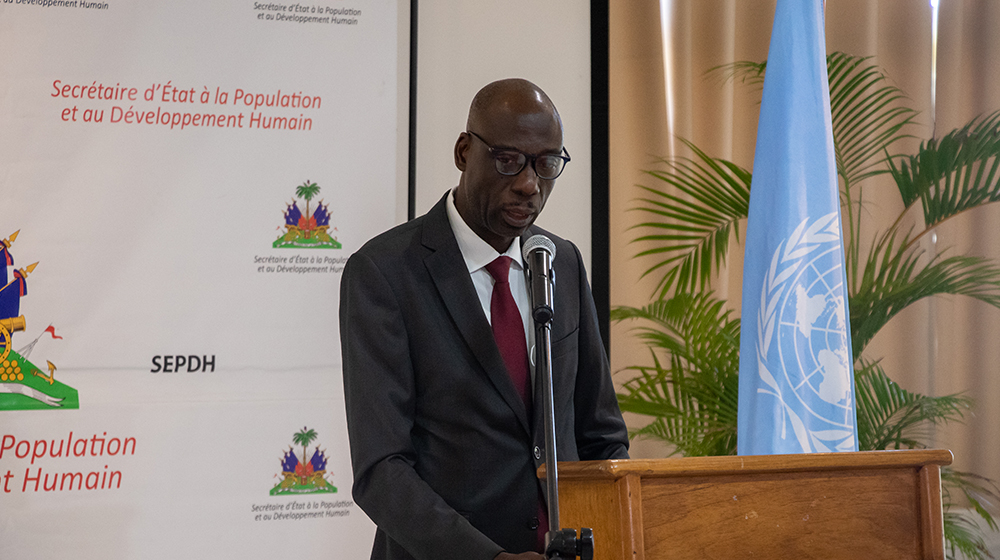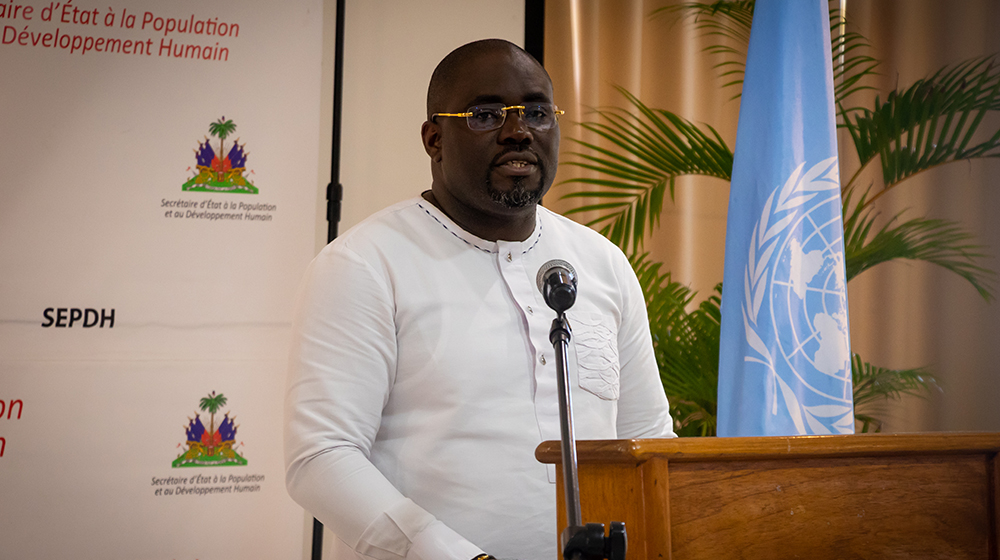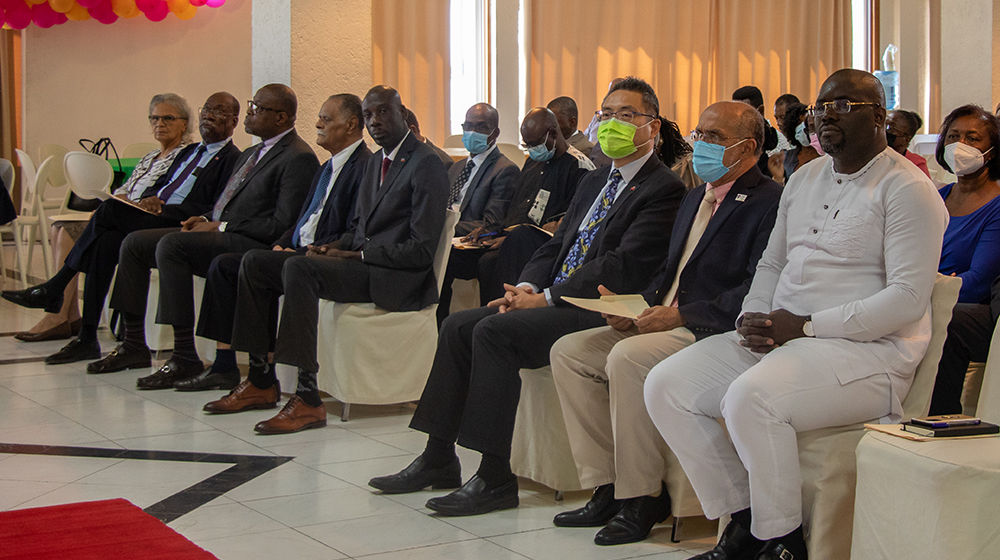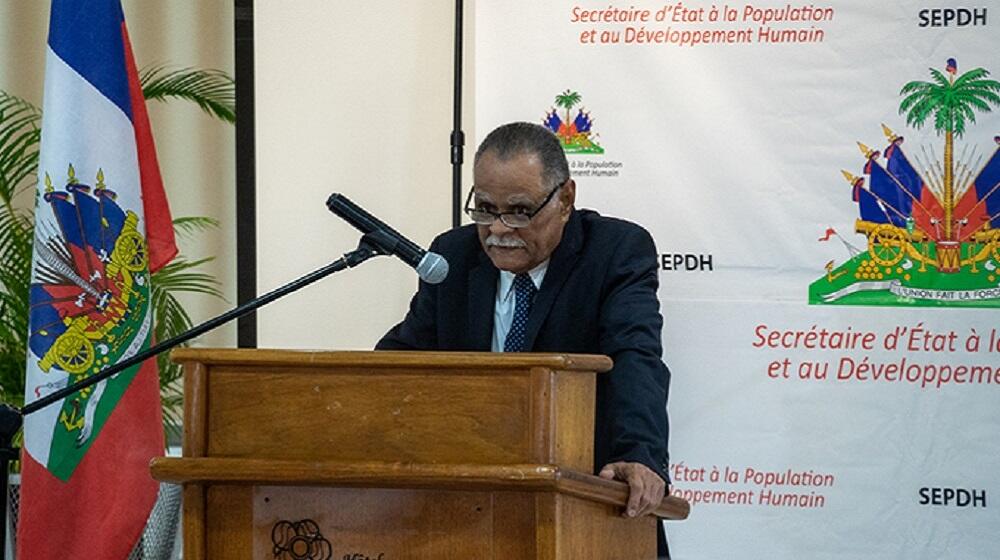The Minister of Public Health and Population, Alex LARSEN, the Secretary of State for Population and Human Development, Laurent BEAUGÉ, and the Deputy Representative of UNFPA in Haiti, Judicaël Elidje - who spoke on behalf of the Representative, Saidou Kabore - commemorated, on July 11, 2022, in Port-au-Prince, World Population Day.
This activity took place under the theme: “Understanding the imperceptible: acting to resolve the forgotten crisis of unintended pregnancies”.
A regret
The Secretary of State for Population and Human Development regretted that public policy measures are not in line with the international declarations signed by Haiti.

The Haitian state has not respected the commitments made at the Nairobi summit in 2019, which included "the collection of quality, timely and disaggregated data", underlined Laurent Beaugé. The last General Census of Population and Housing dates back to 2003, while the UN recommends a census every ten years.
The 5th General Census of Population and Housing of Haiti, the first digital census of the country with a gender mainstreaming approach, cannot currently be carried out under current conditions, despite the efforts made for the preparation of this important exercise.
A relaunch
The Deputy Representative of the United Nations Population Fund in Haiti stressed the importance of holding the census. "Statistics are essential, not for eloquence exercises, but they are used to make more methodical and much more objective decisions," said Judicaël Elidje.

It is important to know the characteristics of its population in view of the possibilities of progress that this offers. These data will certainly allow us, not only to plan equitable development, but also to transform the discriminatory norms that hold back Haitians and society, Elidje pointed out.
"We believe in the virtuous circle of using data that fosters an inclusive economy that works for everyone, that’s fair in its management of resources, helps mitigate risk, and finally meets the needs of current and future generations. “, he concluded.
3 transformative goals
The 2016-2017 Mortality Morbidity and Service Utilization Survey (EMMUS) report reports:
- “529 Haitian women who die out of 100,000 during childbirth,
- 4 out of 10 who cannot access a family planning method,
- 1 out of 8 women between the ages of 15 and 49 who have already been the victim of sexual violence.
UNFPA's strategic plan is part of this dynamic. It aims in particular to end preventable maternal deaths, gender-based violence and harmful practices, as well as unmet needs for family planning, by 2030.
The Deputy Representative of UNFPA sensitized everyone on the importance of data collection and the need for harmonious collaboration to change the situation.
Hold on to the SDGs
The Minister of Public Health and Population, Alex Larsen, spoke about the demographic hazards that Haiti is facing. He mentioned the global context marked by an increase in population, combined with climate problems, desertification and armed conflicts which will worsen the crises that plague the country internally.

"If nothing is done, we can expect more and more mass migration to urban centers and across national borders, the increase in unwanted pregnancies and extreme poverty," said Alex. Feedback.
Actions must be intensified so that Haiti holds on to the Sustainable Development Goals (SDGs), added the Minister. It is a universal meeting for a fairer world by 2030. Alex Larsen encouraged unity and the awakening of patriotic consciousness in order to create this better tomorrow.
What about the demographic dividend?
The Haitian population is estimated at 11 million inhabitants, with a demographic transition that could enable the capture of the demographic dividend, through sustained investment in human capital (education and health), particularly among adolescents, adolescent girls, and youth, economy and governance.
Text : Oliver Ambroise and Vario Sérant
Photos : Michaël Isaac Junior Ambroise
Texte traduit du Français à l’Anglais par :
Jhunie Laura Ganème et Michael Johnson Leger,
Officiers communautaire


